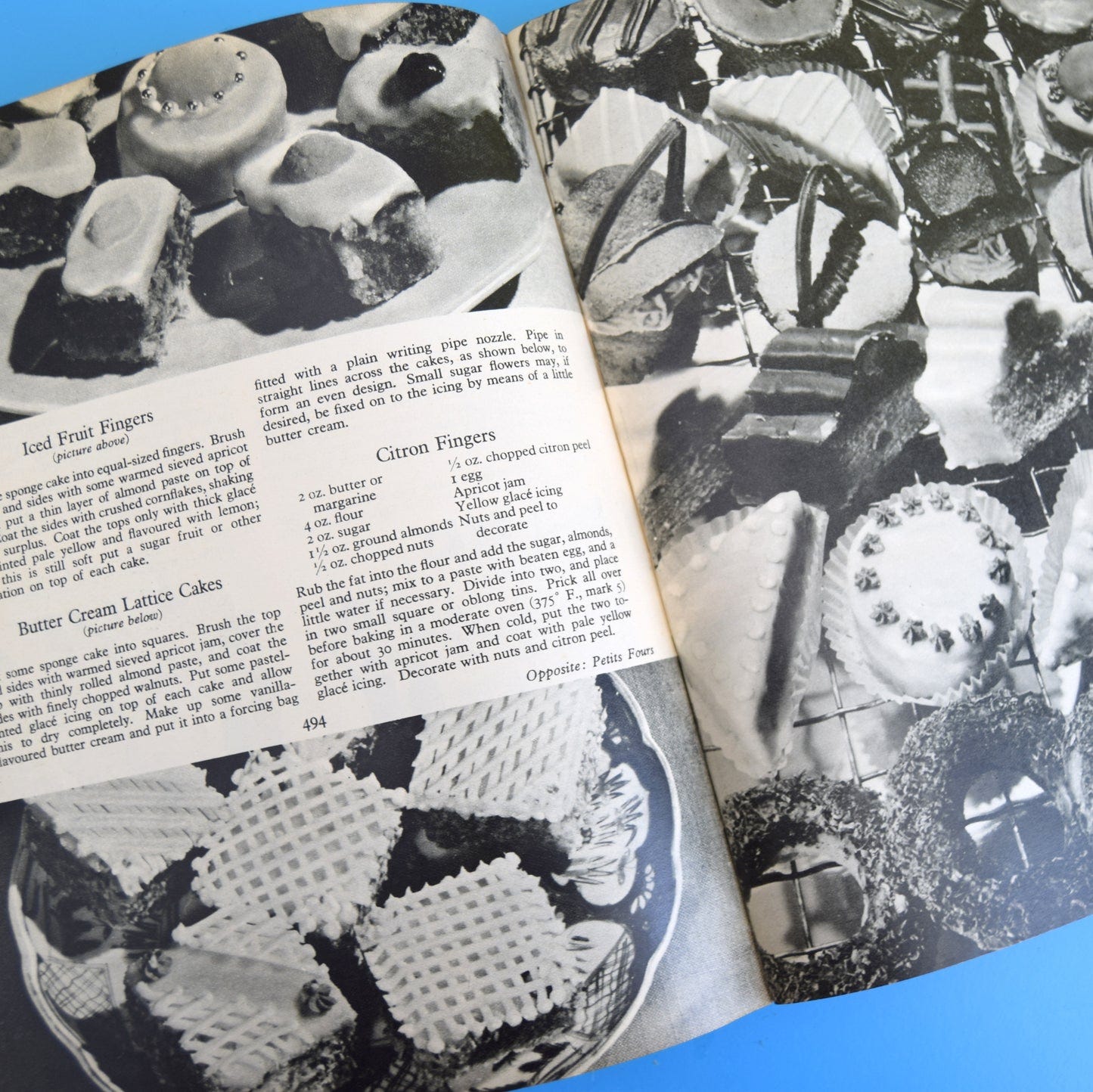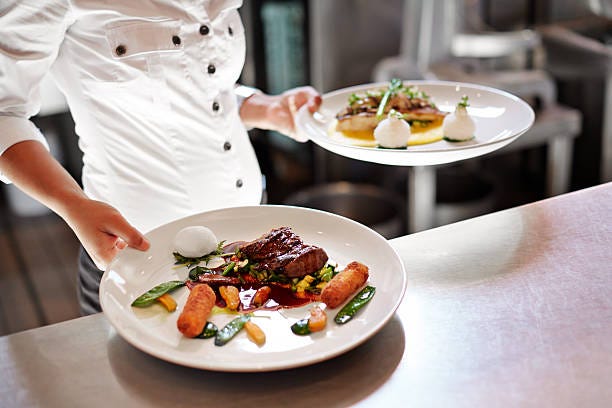By Sue
Remember ration books? Some readers will, having been born during WW2 or just after. Imported food items, many of which will have been augmenting local produce, had to be rationed to go round. U-boats 'patrolled' the Channel on the lookout for cargo vessels. Starving us into submission was one way to get Britain to her knees.
The 'food passports' with their little stamps disappeared slowly, or rather the items they controlled remained restricted according to availability. Bread, for instance, was rationed for a further year and meats for ten. Cheese remained in short supply for some time after the war.
Home cooking was simple, usually of the meat and two veg variety. Our Sunday roast was likely to be sirloin or brisket and was expected to stretch to several meals in various forms. In common with the majority of middle-class housewives, Mother had the Good Housekeeping (GH) recipe book from 1950. It featured all the basics of British cookery (I have a well-worn copy which I treasure).
Despite the austerity measures that had restricted the British diet for a good part of the early to mid 20th century, some more exotic-sounding preparations from France featured in the GH book. Originally introduced as 'haute cuisine', catering for royalty and the aristocracy, they gradually slipped 'down-market' a notch to become popular among the upper, then middle, middle classes – and were no longer considered only for the great and the good. They include: hors-oeuvres (nicknamed horses ovaries), canapés, vol-au-vent, croquettes, patés, quiche lorraine, omelettes (nicknamed small Frenchmen) soufflés and casseroles. Popular preparations, dressings and sauces such as: au gratin, fricassee, purée, mayonnaise, vinaigrette and fondue along with croissants, profiteroles, parfait, fondant and éclairs are familiar to even the most moderate foodies.
And so, by the 21st century, via our diet, even more French words have been welcomed into our language and no longer evoke an air of Gallic sophistication.
But we Brits remain loyal to our own food traditions. We may have a mediocre reputation when it comes to cookery, but we have our own selection of goodies which are, in our opinion, unrivalled. AND they have excelled themselves further by providing our large collection of idioms with useful material. To demonstrate what we mean, herewith a few examples of our favourite staple dishes and some of the expressions they afford us:
PIE – nice as pie, in apple-pie order and we mustn't overlook that practical joke - the apple-pie bed
PUDDING – we're known as Pudding Island and so frequently demand proof
STEW – thoroughly stewed and in a stew
SOUP – we're in the soup and a pea-souper is forecast
DUMPLING – a dumpling's chance in a stew – none, she's a bit of a dumpling
TART – we've all come across her
BREAD – a modern-world necessity if we want to buy anything
POTATO – we've had them in our socks, darn it!
MUSTARD – it has to cut it to succeed
BUN – a old-fashioned hairdo and one in the oven
WAFFLE – meaningless chatter
JELLY – what our legs turn to when scared
BISCUIT – well that just about takes it
And as for animal protein:
FISHy – as in detective-speak 'There's something dodgy going on here!'
CHIP – on the shoulder. Our sympathies if you have a bag of 'em
CHICKEN – too scared to cross the road, even for McNuggets?
BEEF – to complain – a British pastime
PIG – uncontrollably greedy
CRABs – you wouldn't want 'em
WINKLEs – little boy's appendages named after Wee Willie Winky
DUCK – keep your head down, Ducky
TURKEY – a failed production
RABBIT – incessant chatter or to bunny (cockney slang)
HARE – high-speed perambulation as in running for the bus
It would be remiss of us not to mention the British working-class diet. 'Mum's home cooking' was absolutely traditional and considered unrivalled by many young men, which made life difficult for new wives who may not have been schooled by their mums. Foods from abroad were, and probably still are, frequently referred to as 'muck' as in 'I'm not eating any of that foreign muck'. Nonetheless, it's interesting to note that Indian and Chinese are not counted as foreign. Neither is American fast-food which is now available countrywide as is pizza.
Good old fish 'n chips, however, takes some beating.
DISCLAIMER: WAYS WITH WORDS is about word-play and not intended to be an educational aid. Please note we cannot take responsibility for any inaccuracies.










